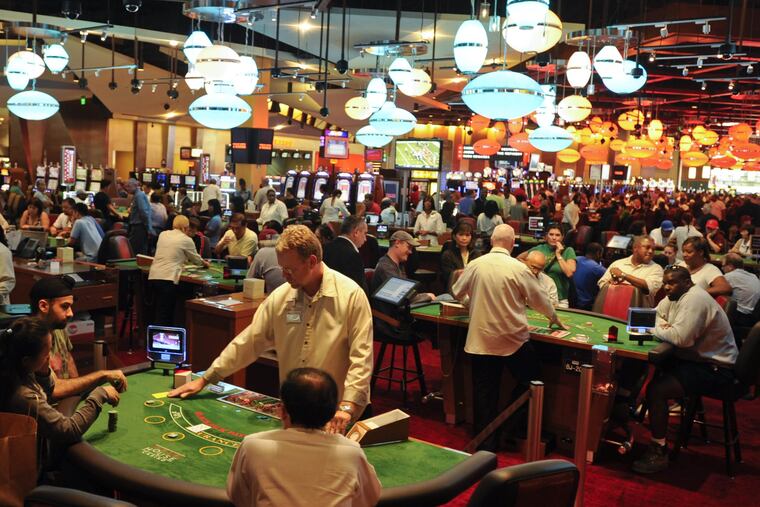With ban lifted, casinos’ political contributions need some basic limits | Editorial
While any new law is sure to have loopholes, more – not less – must be done to limit the influence of gambling interests in Harrisburg.

Lawmakers in Harrisburg have been on break since June and only have a handful of session days scheduled in the fall. But once the largest "full-time" legislature in the country gets around to considering new bills, one priority is crafting a measure that limits political donations from people involved in the gambling industry.
A federal court overturned the state's previous ban on contributions from gambling interests, ruling the measure was too broad. But U.S. District Judge Sylvia H. Rambo suggested the legislature could explore ways to restrict political contributions from the gambling industry by more clearly defining who is subject to the ban or by limiting aggregate contributions.
Harrisburg lawmakers should follow Judge Rambo's advice. While any new law is sure to have loopholes, more – not less – must be done to limit the influence of gambling interests in Harrisburg.
To be sure, the initial ban on contributions did not stop many well-connected players with no casino experience, including one felon, from getting gambling licenses after lawmakers legalized slot machines in the middle of the night in July 2004.
Seven years later, a grand jury report found Pennsylvania's casino industry was built on cronyism, patronage, back-room deals, overlooked criminal histories, and alleged mob ties. The report accused gambling officials of operating in secret, rushing background checks, and ignoring wrongdoing of casino applicants.
Even after the sleazy start, the gambling industry's influence on lawmakers in Harrisburg has not stopped. In fact, the gambling industry quickly grew from slot machines at horse-racing tracks to full-blown casinos, and recently expanded again to allow online betting, sports betting, and gambling in airports and truck stops.
Pennsylvania quickly became the second largest state for casino gambling after Nevada. As other states have rushed to legalize casinos and other forms of gambling, the industry's influence has grown at the federal and state levels. Consider, for example, in the two years leading up to the 2013 legalization of casinos in New York, gambling and horse racing interests spent nearly $20 million on lobbying and campaign contributions, according to Common Cause New York.
The influence of gambling money is all the more reason why lawmakers in Harrisburg need to pass a new measure limiting political donations that can withstand legal challenge. Lawmakers should look to other states: New Jersey prohibits casino managers and corporate owners from making direct or indirect campaign donations. Maryland prohibits donations from shareholders with a 5 percent or more ownership stake in a casino.
Doing nothing is not an option. Pennsylvania has some of the worst campaign finance laws in the country and is one of just a handful of states with no limits on campaign contributions. That may explain why Pennsylvania is consistently ranked among the most corrupt.
Casinos bring added stench to governing. A 2013 study by economists Douglas M. Walker and Peter T. Calcagno found that when casinos come to town, there is an increase in public corruption convictions.
If the past is any indication, the latest gambling expansion will lead to more corruption. That is why campaign finance regulations are a priority, as is increased scrutiny by regulators and law enforcement officials.